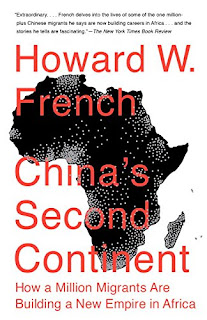"Benar benar dipercaya dan cerdas dalam menyampaikan" Pemimpin Teladan
خطاب تقديم موثوق به والذكية في تروثلي
Trusted and smart in delivering speech
真实性值得信赖和智能在交付演讲
Gubernur DKI Jakarta, Basuki Tjahaja Purnama (Ahok) mengatakan, setiap pemimpin harus memiliki empat sifat yang dimiliki Nabi Muhammad saw. Empat sifat itu adalah
Shiddiq صِدِّيْق (benar), Amanah أمانة (dipercaya),
Fathonah فطن (cerdas), dan Tabligh تالبليغ (menyampaikan).
Akan tetapi Gubernur DKI menambahkan manusia yang hidup di zaman ini tidak akan mampu memiliki sifat-sifat Rasulullah saw. Paling tidak sebagai manusia kita harus memiliki keteladanan seperti Nabi Muhammad SAW. “Paling tidak saya sudah memiliki pedoman empat sifat Rasulullah,” ujar Gubernur DKI yang saat itu sebagai pembicara seminar peringatan Nabi Muhammad saw bertema ‘Rasulullah Sebagai Pemimpin Teladan’, di Gedung Smesco, Minggu (18/1).
media-islam.or.id/2011/10/30/4-sifat-nabi-shiddiq-amanah-fathonah-dan-tabligh/
Dengan teladan Fathonah
Nabi mampu mengatur ummatnya sehingga dari bangsa Arab yang bodoh dan terpecah-belah serta saling perang antar suku, menjadi satu bangsa yang berbudaya dan berpengetahuan dalam satu negara yang besar yang dalam 100 tahun melebihi luas Eropa. Negara tersebut membentang dari Spanyol dan Portugis di Barat hingga India Barat. Itu semua membutuhkan wawasa kecerdasan yaitu Fathonah yang luar biasa. Penulis Michael H Hart di bukunya yang berjudul
3. Seratus Pemimpin yang Berkontribusi dan Berpengaruh.
Tiga kiat mencapai pemimpin yang dipercayai (值得信赖的领袖 )
Trusted Leader
President Tiongkok Xi Jingping dalam memberantas korupsi membina kawanan pemimpin pemimpin keamanan publik tiongkok yaitu telah mengangkat kepala kepolisian Tiongkok Wang Xiaohong sebagai kepolisian yang menjabat sebelumnnya sebagai Henan dan wakil Gubernur tahun 2013. Beliau juga berhasil membangun multi lateral dan kepercayaan Global finansial melalui forum and komunikasi investment infrastruktur AIIB (Asian Infrastructure Investment Bank) untuk mengapai Visi Sejarah Global Jalur Sutera dimana negara asia sangat memerlukan dan menghubungkan maritim dan Pelabuhan negara asia selatan sampai ke Afrika. Beliau telah mempercayai kepala menteri keamanan publik Deng Weiping dari posisinya sebagai kepala pembina satuan provinsi Guangxi memimpin tujuan lebih besar memberantas korupsi di partai dan jabatan pemerintahan yang berkuasa. Perbandingannya President Republik Indonesia Jokowi yang juga bisa disebut dalam bahasa mandarin 佐科威 Zuǒ kē wēi dalam visi dan misinya memberantas korupsi dan pengedar narkoba mengangkat kepala kepolisian Badrodin Haiti juga membangun semangat Konferensi Asia Afrika untuk menjadikan Indonesia sebagai hub Afrika and Asia terutama di bidang pendidikan dan bidang bidang lainnya. Visi dan Misi President Jokowi bisa dilihat dari terbukanya pemerintahan terhadap hutang negara dan rencana untuk melunasinya sementara kebutuhan infrastruktur menghubungkan maritim axis, kereta api dan pelabuhan laut dalam di Indonesia.
Teka teki dan Ilustrasi pemimpin cerdas yang fathonah dari gambar dibawah ini

Pemimpin tidak dapat dipercaya bila dalam kanca politiknya
ada skandal dan kolusi deretan bawahannya dan partainya
terjerat tuduhan pengadilan dan skandal terdapat korupsi dan nepostim
adalah penyakit dari terpuruknya sebuah negara dari keterbelakangan.
Sebuah kepemipinan dengan tujuan kesejahteraan umum , mengurangi penganguran
yang dilakukan mencipatakan lapangan kerja. Pemimpin yang kedengarannya
saja telah mencapai sesuatu hal dan kapabel di momen tertentu dan hati baik tidaklah cukup dalam menjalankan kepemimpinan yang dapat dipercaya.
Kedengarannya telah melunasi sebagian dari hutang adalah tidak cukup
memberantas kemiskinan di Indonesia.
Kedengarannya menjaga hubungan baik tidak cukup untuk membangun
ekonomi bilateral karena faktor utama pemimpin bisa membawa warganya
kerja kerja kerja untuk mencapai kemakmuran.
Tiga Kiat Pemimpin yang Dapat dipercaya adalah seperti gambar diatas
1. Keselamatan dan Kesejahteraan umum dan bawahannya
2. Melayani Birokrat supaya jujur
3. Mengambil Resiko dalam Penderita Personal untuk memperjuangkan nilai substasial
Lima. Nara sumber buku dibawa adalah contoh bagaimana kiat pemimpin
dan pejabat yang dapat dipercaya:
1. The Trusted Leader: Building the Relationships that Make Government Work
2. Talk, Inc.: How Trusted Leaders Use Conversation to Power their Organizations
3. "Trusted & Believable Leaders": "The Seven (7) Powerful Habits & Strategies"
© For "Building & Rebuilding Trusted (TR) Relationships"
4. Be A Trusted Leader: Accelerate Your Influence NOW!
5. The Trusted Advisor Fieldbook: A Comprehensive Toolkit for Leading with Trust

Pemimpin tidak dapat dipercaya bila dalam kanca politiknya
ada skandal dan kolusi deretan bawahannya dan partainya
terjerat tuduhan pengadilan dan skandal terdapat korupsi dan nepostim
adalah penyakit dari terpuruknya sebuah negara dari keterbelakangan.
Sebuah kepemipinan dengan tujuan kesejahteraan umum , mengurangi penganguran
yang dilakukan mencipatakan lapangan kerja. Pemimpin yang kedengarannya
saja telah mencapai sesuatu hal dan kapabel di momen tertentu dan hati baik tidaklah cukup dalam menjalankan kepemimpinan yang dapat dipercaya.
Kedengarannya telah melunasi sebagian dari hutang adalah tidak cukup
memberantas kemiskinan di Indonesia.
Kedengarannya menjaga hubungan baik tidak cukup untuk membangun
ekonomi bilateral karena faktor utama pemimpin bisa membawa warganya
kerja kerja kerja untuk mencapai kemakmuran.
yang dilakukan mencipatakan lapangan kerja. Pemimpin yang kedengarannya
saja telah mencapai sesuatu hal dan kapabel di momen tertentu dan hati baik tidaklah cukup dalam menjalankan kepemimpinan yang dapat dipercaya.
Kedengarannya telah melunasi sebagian dari hutang adalah tidak cukup
memberantas kemiskinan di Indonesia.
Kedengarannya menjaga hubungan baik tidak cukup untuk membangun
ekonomi bilateral karena faktor utama pemimpin bisa membawa warganya
kerja kerja kerja untuk mencapai kemakmuran.
1. Keselamatan dan Kesejahteraan umum dan bawahannya
2. Melayani Birokrat supaya jujur
3. Mengambil Resiko dalam Penderita Personal untuk memperjuangkan nilai substasial
Lima. Nara sumber buku dibawa adalah contoh bagaimana kiat pemimpin
dan pejabat yang dapat dipercaya:
1. The Trusted Leader: Building the Relationships that Make Government Work
2. Talk, Inc.: How Trusted Leaders Use Conversation to Power their Organizations
3. "Trusted & Believable Leaders": "The Seven (7) Powerful Habits & Strategies"
© For "Building & Rebuilding Trusted (TR) Relationships"
4. Be A Trusted Leader: Accelerate Your Influence NOW!
5. The Trusted Advisor Fieldbook: A Comprehensive Toolkit for Leading with Trust
1. The Trusted Leader: Building the Relationships that Make Government Work
2. Talk, Inc.: How Trusted Leaders Use Conversation to Power their Organizations
3. "Trusted & Believable Leaders": "The Seven (7) Powerful Habits & Strategies"
© For "Building & Rebuilding Trusted (TR) Relationships"
4. Be A Trusted Leader: Accelerate Your Influence NOW!
5. The Trusted Advisor Fieldbook: A Comprehensive Toolkit for Leading with Trust




